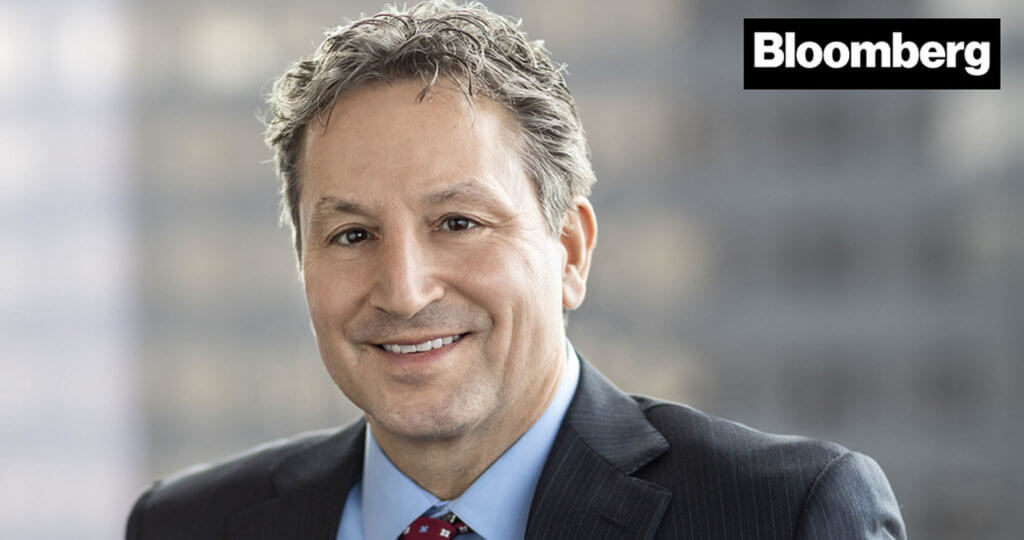Oakmark Global Fund - Investor Class
Average Annual Total Returns 03/31/11
Since Inception 08/04/99 11.59%
10-year 12.08%
5-year 4.86%
1-year 11.07%
3-month 2.36%
Gross Expense Ratio as of 09/30/10 was 1.15%
Past Performance is no guarantee of future results. The performance data quoted represents past performance. Current performance may be lower or higher than the performance data quoted. The investment return and principal value vary so that an investor’s shares when redeemed may be worth more or less than the original cost. The performance of the Funds does not reflect the 2% redemption fee imposed on shares redeemed within 90 days of purchase. To obtain the most recent month-end performance data, view it here.
Quarter Review
After two consecutive strong quarters for the Oakmark Global Fund, the March quarter, although positive, proved to be a struggle. The Fund’s three-month return was 2%, which compared to the nearly 5% that the MSCI World Index gained in the period. The return for the Lipper Global Fund Index was 5%. For the first six months of the Fund’s fiscal year, the returns are 13% for the Global Fund, 14% for the MSCI World Index and 14% for the Lipper Global Fund Index. As always, we are most pleased to report the Fund’s 12% compound annualized rate of return since inception.
The Fund’s investments in Italy, Ireland and Germany were among the top contributors to the Fund’s return in the quarter. Investments in Japan and Australia lost money in the period, and returns for U.S. holdings, while positive, were a significant drag on results relative to the MSCI World Index. Bulgari (Italy) was the lead contributor to return, as the company agreed to its acquisition by LVMH at a substantial premium. SAP (Germany) and Oracle (U.S.), competitors in enterprise software, both benefited from strength in that sector. Covidien (Ireland) enjoyed positive momentum as the health-care sector rebounded. Broad strength in the global industrial economy boosted the business and shares of Snap-On (U.S.).
It is quite understandable that the list of detractors includes two Japanese concerns—in fact, it would not have been surprising had Japanese companies completely populated that list. Both Canon and Daiwa Securities likely will suffer impacts of uncertain duration because of the tragic events of early March, but we do not expect the diminution of their business value to be permanent. New purchase Cisco Systems (U.S.) surprised investors (including us) with the details in its quarterly report. In particular, the company showed deteriorating profit margins, apparently the result of increased competition in several key markets. Primary Health Care (Australia) continues to struggle with pricing in its home market. Shares of Julius Baer (Switzerland) gave back some ground after a strong run.
For the fiscal six months, Italy, France and the U.K. were the leading contributors while Japan and Australia were among the top detractors to the Fund’s return relative to the MSCI World Index. Spain was the only country to produce a small loss in the portfolio. The U.S. produced four of the top five performers (Snap-On, Oracle, Sara Lee and Laboratory Corporation of America), with Italy’s Bulgari the fifth. Square Enix (Japan), Cisco, Discovery Communications (U.S.), Canon and Credit Suisse (Switzerland) detracted from six-month return.
Portfolio Activity
The Oakmark Global Fund typically contains approximately 40 different equity holdings. During the March quarter, the Fund was fortunate to have 5% of its holdings (two issues, actually) attract takeover offers. We always attempt to invest in equities at prices we believe are well below the issuing company’s intrinsic value per share. When an acquirer agrees with our assessment and offers a premium price for our holding, first we celebrate and then we get to the task of understanding how the acquisition price adds to our understanding of true business value in that industry.
Last quarter, we wrote about our experience with Del Monte and how the acquisition price for that company challenged our framework for valuing packaged-food products. Both deals this quarter challenge our thinking, but in opposite directions.
Sanofi-Aventis has agreed to acquire Fund holding Genzyme at a price that falls short of what we had calculated using our methodology for valuing biotechnology companies. We are grateful for the rapid increase in share price that Genzyme experienced for the Fund, but will continue to evaluate what the valuation implied in the takeover price means for similar businesses.
In contrast, the acquisition price for Italy’s Bulgari exceeded our expectations for that business by close to 10%. Although, at first blush, the headline multiple of 25 times 2011 estimated operating profits appears to be quite high, we believe the price validates our belief that a rational investor would understand current earnings to be below trend. Weak consumer spending has depressed Bulgari’s sales, turning the company’s operating leverage negative. We initiated our position in Bulgari in July 2002—another period of depressed consumer activity, as consumers retrenched following 9/11. During the time we held the stock, Bulgari gave our shareholders a 17% annualized return, which compares favorably to the Fund’s return of almost 12% and the MSCI World’s return of less than 8%. We thank both Bulgari’s and Genzyme’s management teams for doing their best to represent their shareholders’ interests in these negotiations.
We chose to sell both Genzyme and Bulgari before their tender offers became effective. Our only new purchase in the quarter was Cisco Systems. Cisco dominates the market for Internet protocol-based networking equipment, providing routers and switches used to direct data, voice and video traffic. Other products include remote access servers, IP telephony equipment, optical networking components, Internet conferencing systems, set-top boxes, and network service and security systems. Cisco sells primarily to large enterprises and telecommunications service providers, but it also targets small businesses and consumers with products such as routers, modems and home network management software. As noted in the beginning of this report, Cisco’s shares have performed poorly since our purchase, but we remain confident in the long-term value of its franchise.
Japan
As we write this report, three weeks have passed since Japan’s earthquake and tsunami occurred, and we still face uncertainties as we wait for more clarity at the Fukushima Daiichi nuclear plant. As someone who was in Tokyo on the day of the quake and tsunami, I (Rob) can tell you that I shared the fear that gripped the country as the ground shook and newscasters broadcast that a 30-foot wall of water was set to strike the coast only 30 minutes later. On behalf of the partners and employees at Harris Associates L.P., your managers would like to convey our deepest condolences to the people of Japan as they contend with their worst national disaster in generations.
Coverage of this disaster has been extensive, so we will not review the actual events. But we do think it is important to separate broader fears from business fundamentals, given that a significant portion of our portfolio is invested in Japanese-listed companies.
- Nomura Securities estimates that electricity supply could fall about 5% to 10% short of demand because of power outages in the tsunami-affected areas during the 12 months ending March 31, 2012. A 10% shortfall could cause a 4.7% drop in pretax profits for all Japanese companies. Since new capacity likely will eventually make up for this shortfall, we think the 7% drop in the Topix (Japanese stock market index) from March 10 to April 1 seems excessive (never mind the almost 18% drop from March 10 to March 15), especially since we viewed Japanese companies, in general, to be inexpensive even before the quake.
- It doesn’t appear to us that the natural disaster has had a meaningful impact on the global economy. The Global PMI (purchasing managers’ index) through the end of March remains strong at 55.8 (the level of 50 attempts to separate expansion from contraction). This reading is consistent with global industrial production expanding by 5% to 6%; it would be higher excluding Japan.
- Some of the reporting on radiation appears exaggerated. We are not nuclear experts and realize the situation remains unstable, but understandable concerns may be amplified by sensationalized headlines. For example, a March 31 headline in the Wall Street Journal read “Radiation Traces Found in U.S. Milk,” but the article ends by saying “These findings are a miniscule amount compared to what people experience every day.”
- Other than Daiwa Securities (3.8% holding in the Fund) and Meitec (0.5%), the Fund’s other Japanese holdings have substantial non-Japanese revenues, profits and production capacity.
We cannot predict when the Japanese supply chain and electric capacity will return to full strength, just like we could not predict when developed economies would begin to grow again after the Great Recession but we don’t think the Japanese economy is permanently impaired.
More importantly, we cannot predict how the stock market will react to shocks, whether natural or manmade. As always, we will focus on the intrinsic value of individual companies. In times of uncertainty, we have to return to our view that the fundamentals that drive intrinsic value do not emerge or disappear in one month, one quarter or even one year. Rather, we believe intrinsic value is determined by the present value of all future cash flows. We don’t pretend that corporate earnings will be unaffected by rolling blackouts, supply chain issues, lower consumer consumption or a strong yen. We just view these as temporary factors and not secular trends that impair long-term fundamentals.
While Mr. Market focuses on the short term, positive secular changes continue and are being overlooked. Recently, Canon’s management team held a meeting with analysts to give a mid-term outlook for their business. Management described margins and profitability that exceeded our forecasts, even with the yen at stronger levels than what we view as normal. In addition, management reiterated that excess capital will be returned to shareholders via dividends and share repurchases. Two days before the earthquake, Toyota announced a new mid-term plan focused on emerging-market growth, improved customer satisfaction and solid profitability. These initiatives reaffirm our mid-term outlook for Toyota’s profitability and returns. Equally important is Toyota’s plan to improve the speed of and accountability for decision-making by reducing the size of its board of directors from 27 members to 11. Honda has followed suit by cutting its board from 20 to 12 members. In a consensus-driven culture like Japan’s, we expect other companies to follow the positive steps taken by these influential blue-chip companies to enhance shareholder value.
Currency Hedges
Because we believe the U.S. dollar remains undervalued relative to other currencies held in the Fund, we continue to hedge some of the Fund’s currency exposure. At the recent quarter-end, we hedged approximately 53% of the Fund’s Swiss franc, 56% of the Australian dollar and 53% of the Japanese yen exposure. We added a new hedge to our Swedish holdings and ended the quarter with 25% of the Fund’s Swedish krona exposure hedged.
Please feel free to contact us with your questions or comments. Thank you for being our partners in the Oakmark Global Fund.
As of 3/31/11, Bulgari SpA represented 0% of The Oakmark Global Fund’s total net assets, LVMH Moet Hennessy Louis Vuitton SA 0%, SAP AG 2.3%, Oracle Corp. 4.5%, Covidien Plc. 2.4%, Snap-On Inc. 4.8%, Canon, Inc. 2.8%, Daiwa Securities Group Inc. 3.8%, Cisco Systems, Inc. 2.4%, Primary Health Care, Ltd. 2.7%, Julius Baer Group, Ltd. 3.4%, Sara Lee Corp. 2.6%, Laboratory Corp. of America Holdings 4.2%, Square Enix Holdings Co., Ltd. 3.5%, Discovery Communications Inc. Class C 2.4%, Credit Suisse Group 3.2%, Del Monte Foods Co. 0%, Sanofi-Aventis 0%, Genzyme Corp. 0%, Nomura Holdings, Inc. 0%, Meitec Corp. 0.5%, and Toyota Motor Corp. 3.0%. Portfolio holdings are subject to change without notice and are not intended as recommendations of individual stocks.
The MSCI World Index (Net) is a free float-adjusted market capitalization weighted index that is designed to measure the global equity market performance of developed markets. This benchmark calculates reinvested dividends net of withholding taxes using Luxembourg tax rates. This index is unmanaged and investors cannot invest directly in this index.
The Lipper Global Fund Index measures the performance of the 30 largest mutual funds that invest in securities throughout the world. This index is unmanaged and investors cannot invest directly in this index.
The Japanese TOPIX Index is an index that measures stock prices on the Tokyo Stock Exchange (TSE). This capitalization-weighted index lists all firms that are considered to be under the ‘first section’ on the TSE, which groups all of the large firms on the exchange into one pool. This index is unmanaged and investors cannot actually make investments in this index.
Power, Stephen. “Radiation Traces Found in U.S. Milk.”
http://online.wsj.com/article/SB10001424052748703806304576233221749626458.html?mod=WSJ_WSJ_News_BlogsModule. March 31, 2011.
Investing in foreign securities presents risks that in some ways may be greater than in U.S. investments. Those risks include: currency fluctuation; different regulation, accounting standards, trading practices and levels of available information; generally higher transaction costs; and political risks.
The discussion of the Funds’ investments and investment strategy (including current investment themes, the portfolio managers’ research and investment process, and portfolio characteristics) represents the Funds’ investments and the views of the portfolio managers and Harris Associates L.P., the Funds’ investment adviser, at the time of this letter, and are subject to change without notice.






